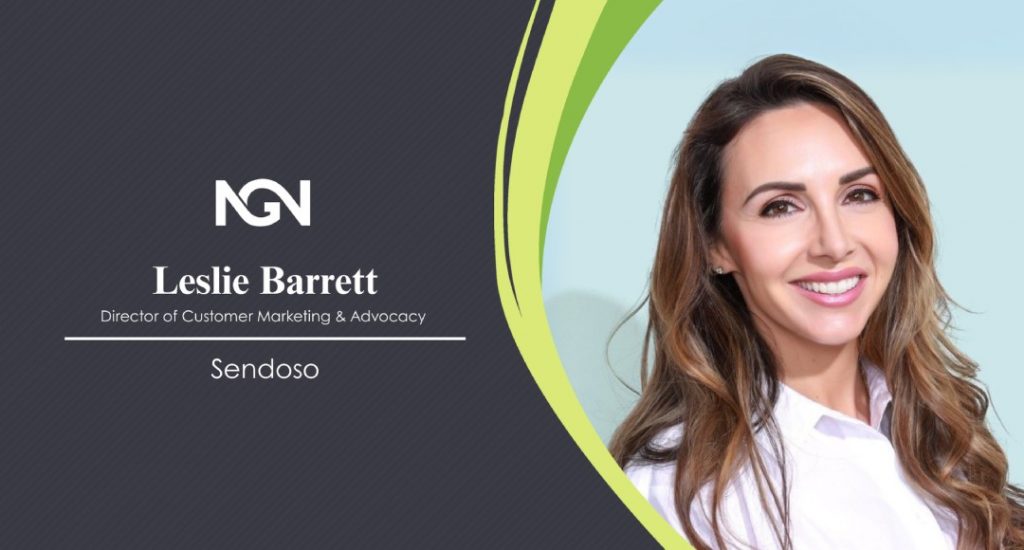Transforming Customer Engagement Through Personalization
In an industry where generic messaging and missed opportunities are common, one professional has redefined the approach to customer experience by making it more personalized and impactful. By refining every touchpoint, interaction, and stage of the customer journey, Leslie Barrett, Director of Customer Marketing at Tipalti and Creator at CMA Soulmate, has revolutionized how businesses connect with their audience. Drawing from her own experiences with software, Leslie identified gaps where many companies failed to engage and saw an opportunity for innovation.
Utilizing a data-driven approach, Leslie ensured that each communication was timely, intentional, and aligned with customer needs, strengthening the trust that customer success teams work hard to maintain. This strategy not only empowered customers but also liberated businesses from outdated, one-size-fits-all marketing methods.
Developing Customer-Focused Strategies
Leslie’s marketing career has been dynamic and fulfilling, beginning over a decade ago at Marketo, a pioneer in marketing automation. During her tenure, she experienced firsthand the challenges of software implementation, fueling her passion for understanding customer needs and ensuring their success.
As she advanced through leading MarTech firms, she recognized the transformative power of prioritizing customers in marketing strategies. She became dedicated to creating initiatives that not only enhance engagement and retention but also deliver impactful “wow” moments that leave a lasting impression.
These experiences led Leslie to develop methodologies that transcend traditional marketing. By emphasizing advocacy, fostering genuine connections, and crafting exceptional experiences, she realized that truly customer-centric strategies not only drive business growth but also build lasting relationships and amplify the customer’s voice, making it a central component of brand success.
Driving Growth Through Customer Marketing
Leslie discovered her passion for customer marketing while working at a Silicon Valley software company. Her mission was clear: engage happy customers, highlight their success stories, and surprise them with thoughtful gestures of appreciation. Customer marketing felt like the perfect fit.
She quickly realized that conventional marketing strategies often fall short because buyers seek proof, not just flashy campaigns. They want tangible evidence that a product delivers results and solves real problems. This is where customer marketing excels—by leveraging the voices of satisfied customers, it provides the credibility and validation needed for potential buyers to make informed decisions.
Leslie believes that customers are the core drivers of business growth. Whether through renewals, upsells, or referrals, they play a critical role in revenue generation. Her passion for this field is so strong that she aspires to teach a college course on customer marketing, sharing her expertise with future marketing leaders.
The Foundation of Effective Customer Advocacy
Leslie asserts that a successful customer advocacy program begins by identifying passionate customers early in their journey and providing them with tailored opportunities to share their experiences. She highlights the importance of offering exclusive platforms, personalized resources, and opportunities such as case studies, speaking engagements, and peer interactions to ensure advocates feel valued and engaged.
The key to long-term success, according to Leslie, is maintaining an evolving advocacy program through continuous feedback, personalized recognition, and dynamic engagement strategies. She warns against treating advocacy as a transactional process—requesting case studies or reviews without fostering deeper connections can lead to disengagement.
Instead, Leslie promotes relationship-building by understanding what motivates advocates, aligning opportunities with their aspirations, and showing genuine appreciation for their contributions. By taking this approach, advocacy programs not only yield better results but also deepen customer-brand relationships. Ultimately, people advocate for meaningful connections, not just products.
Creating Personal Connections
Leslie believes that personalization means crafting tailored, meaningful experiences that resonate with customers at every stage of their journey. At Sendoso, she utilizes personalized gifting to make customers feel valued and recognized, strengthening relationships and fostering loyalty.
She stresses that personalization is not about complexity but relevance. Even with limited resources, brands can implement segmentation—categorizing customers by product usage, engagement level, and lifecycle stage—to ensure messaging is aligned with their specific needs. Advanced personalization strategies, such as dynamic ads, chatbots, and website customization, further enhance the customer experience.
For Leslie, personalization extends beyond technology; it’s about understanding customers on a deeper level and using those insights to deliver value in an authentic and timely manner.
Mastering Account-Based Customer Marketing
In her book, Unlock Growth with Account-Based Customer Marketing, Leslie explores Account-Based Customer Marketing (ABCM), a highly personalized approach that caters to specific customer accounts. Unlike traditional marketing, which targets broad audiences, ABCM leverages in-depth customer insights to deliver precisely tailored messages.
Leslie highlights that companies already possess valuable data on their customers—from platform usage and support interactions to buying cycles and engagement history. With this information readily available, she argues that there’s no reason for generic messaging or premature upsell attempts that could erode customer trust.
By applying ABCM, businesses can ensure that every interaction is intentional, relevant, and adds value, strengthening relationships and reinforcing their position as trusted partners.
Aligning Customer Marketing with Business Goals
Leslie acknowledges that Customer Marketing is often undervalued in B2B SaaS organizations, overshadowed by Demand Generation. To secure its place, she advises aligning initiatives with leadership priorities and tailoring metrics to resonate with decision-makers.
For example, if reporting to Customer Success, the focus should be on retention, upsell impact, and customer experience rather than lead generation. To demonstrate value, Leslie recommends tracking four key metric categories:
- Program Output: Measures tangible outcomes like new advocates and case studies.
- Program Engagement: Tracks customer interactions with advocacy initiatives.
- Revenue Growth: Highlights upsell revenue and renewal rates influenced by advocacy.
- Advocates vs. Non-Advocates: Compares engagement and retention between program participants and non-participants.
By aligning these metrics with company objectives, Customer Marketing becomes an indispensable asset, securing its place within the organization.
Mapping the Customer Journey
Leslie underscores the importance of mapping the customer journey, despite its complexity. This process involves analyzing every stage, from onboarding and adoption to renewal and advocacy. Since customer experiences don’t follow a linear path, collaboration across teams—Sales, Marketing, Customer Success, and Product—is essential.
Mapping the journey allows businesses to move beyond generic strategies and craft personalized interactions that nurture relationships, build loyalty, and help customers achieve their goals. By addressing challenges and celebrating milestones, companies can create a truly customer-centric experience.
Collaboration and Continuous Innovation
Executing an effective ABCM strategy requires teamwork. Leslie emphasizes the importance of working closely with Customer Success and Account Management teams, who have direct relationships with customers and valuable contextual insights.
She acknowledges that ABCM is complex and requires careful orchestration, but the effort is worthwhile. The key is to start small, iterate, and refine strategies based on customer feedback. When done right, ABCM enhances the entire customer experience, delivering measurable business impact.
Ethical Personalization in the AI Era
Looking ahead, Leslie envisions AI and machine learning playing a pivotal role in hyper-personalized customer experiences. However, she stresses the ethical use of data, ensuring privacy and security remain priorities. At her current company, she utilizes AI-powered virtual assistants while maintaining strict data protection measures, recognizing the game-changing potential of AI in customer engagement.
Elevating Customer Experience Through Gifting
Leslie recalls orchestrating a “National Customer Appreciation Day” campaign at a previous company, aimed at deepening customer relationships and fostering brand loyalty. As part of this initiative, she designed a gifting strategy that allowed customers to choose from personalized gift options, reinforcing their connection to the brand.
For those looking to implement similar strategies, Leslie offers insights in her ABCM Book, which provides a comprehensive playbook for building meaningful customer relationships through Account-Based Customer Marketing.
By integrating these principles, businesses can elevate customer marketing from a support function to a strategic driver of growth and success.




